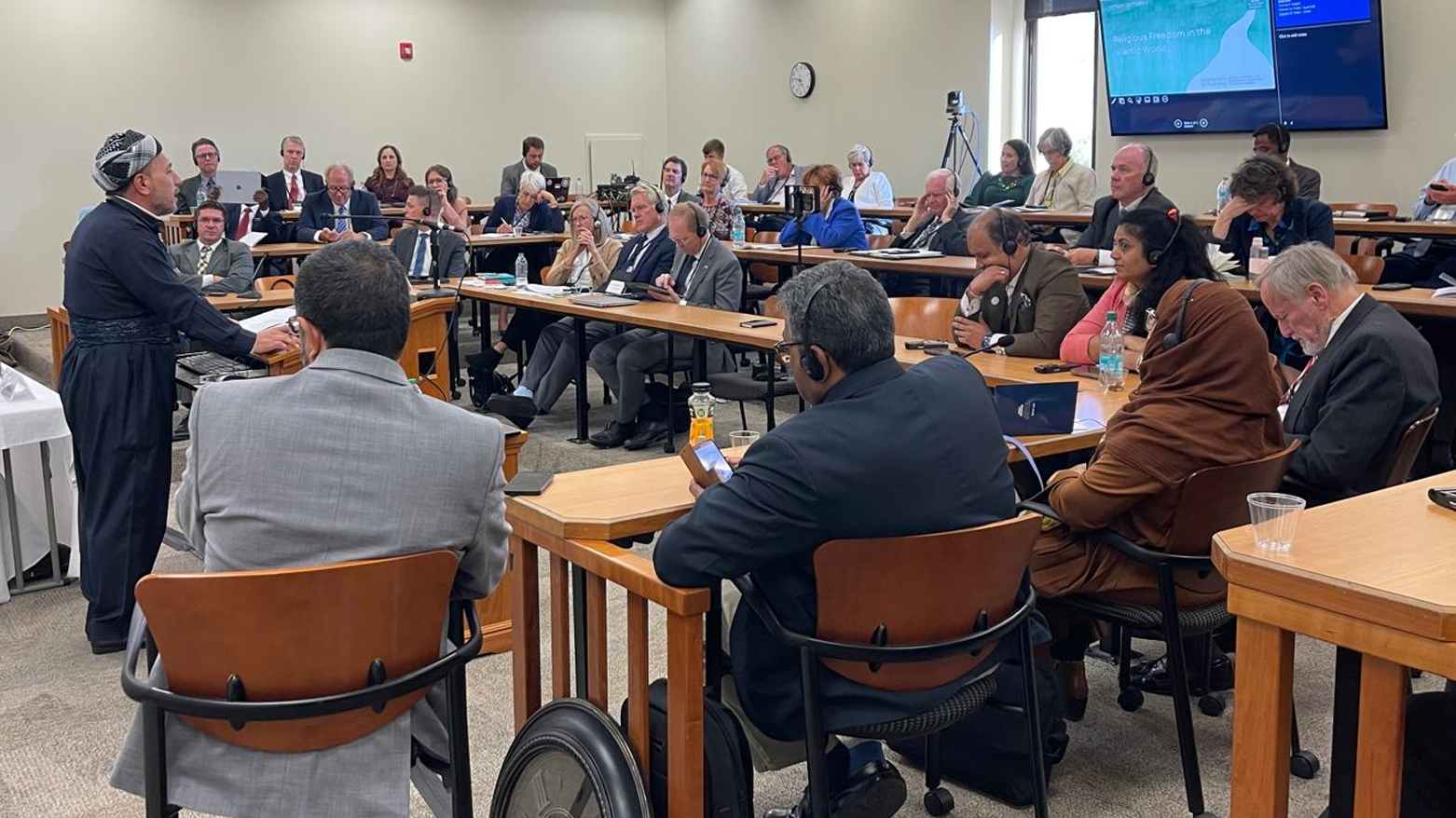Kurdistan Region’s Islamic Scholars Join Global Religious Forum in the United States
Kurdistan Region Islamic scholars participated in the 32nd International Law and Religion Symposium in the US, highlighting the Region's model of Muslim-Christian-Yezidi coexistence.

ERBIL (Kurdistan24) – The 32nd Annual International Law and Religion Symposium was inaugurated this week at Brigham Young University (BYU) in the state of Utah, United States, gathering more than 100 delegates from 54 countries. Among the participants was Dr. Abdullah Waisy, President of the Union of Islamic Scholars in the Kurdistan Region, who shared insights from the Kurdish experience in promoting interfaith coexistence and protecting freedom of belief within the Region’s pluralistic society.
For three consecutive days, scholars, diplomats, and religious leaders from across the world convened to exchange perspectives on faith, legal frameworks, and the shared principles of peace, dialogue, and human dignity. The symposium focused on exploring pathways to strengthen the relationship between religion and the rule of law in a manner that fosters inclusion, reconciliation, and freedom.
Dr. Waisy, addressing the forum, outlined the Kurdistan Region’s pioneering experience in interreligious harmony, emphasizing that the coexistence among Muslims, Christians, Yezidis, and other communities represents a practical model for tolerance in the Middle East. He described the Region as “a living testimony of peaceful coexistence and freedom of faith,” adding that religious freedom and respect for diversity form a core part of its constitutional and social identity.
Speaking to Rahim Rashidi, head of Kurdistan24’s Washington bureau (Mr. Kurd), Brett Scharffs, Director of the International Center for Law and Religion Studies, said the event aims to bring together diverse voices to address shared global challenges.
“We’re here holding the 32nd annual symposium devoted to the study of law and religion. We gather with over 100 delegates from 54 countries,” he said.
“The purpose of this symposium,” Scharffs continued, “is to bring together religious leaders, academics, and government officials to talk about common issues relating to law and religion. We believe that if we bring together genuinely international audiences and experts to discuss these issues, we can really learn from each other by listening deeply.”
Highlighting his center’s long-standing engagement in the region, Scharffs added, “Our center has been deeply involved and interested in Iraq and Kurdistan for many years. We have attended conferences and participated in programs focusing on the Yazidi people and the challenges in Iraq for a long time. We’re very happy to have a delegation here from Kurdistan, and we’re trying to find constructive ways to contribute to the building of lasting peace in Iraq, in Kurdistan, and throughout the region.”
Eliza Aldis, a Brigham Young University alumna, shared her reflections with Kurdistan24 following the conference. “My favorite part of the speech was during the question and answer session when someone asked, ‘Why is there violence in this region? If there are so many people who are Muslim, how can that happen?’ Dr. Waisy gave a great answer, explaining that the cause is not religion itself. Religion does not cause violence — it depends on how people apply it. His message was very positive and very insightful about the region.”
Aldis emphasized that the Kurdish scholar’s remarks provided valuable context for Western audiences seeking to understand the Middle East beyond stereotypes of conflict. “I thought his message was very inspiring,” she said.
The International Law and Religion Symposium, hosted annually in the United States, serves as a prominent platform for intercultural dialogue and the defense of religious freedom worldwide. This year’s edition reflected growing global interest in the Kurdistan Region’s model of peaceful coexistence, which has become an example of tolerance and pluralism in an often-divided region.
The event’s organizers stressed that the ultimate goal of the symposium is to strengthen bridges between religious communities and promote awareness of universal values of justice, peace, and respect. Through the participation of representatives from Iraq and the Kurdistan Region, the discussions highlighted the region’s evolving role in advancing interfaith cooperation and its contribution to the global movement for harmony and mutual understanding.